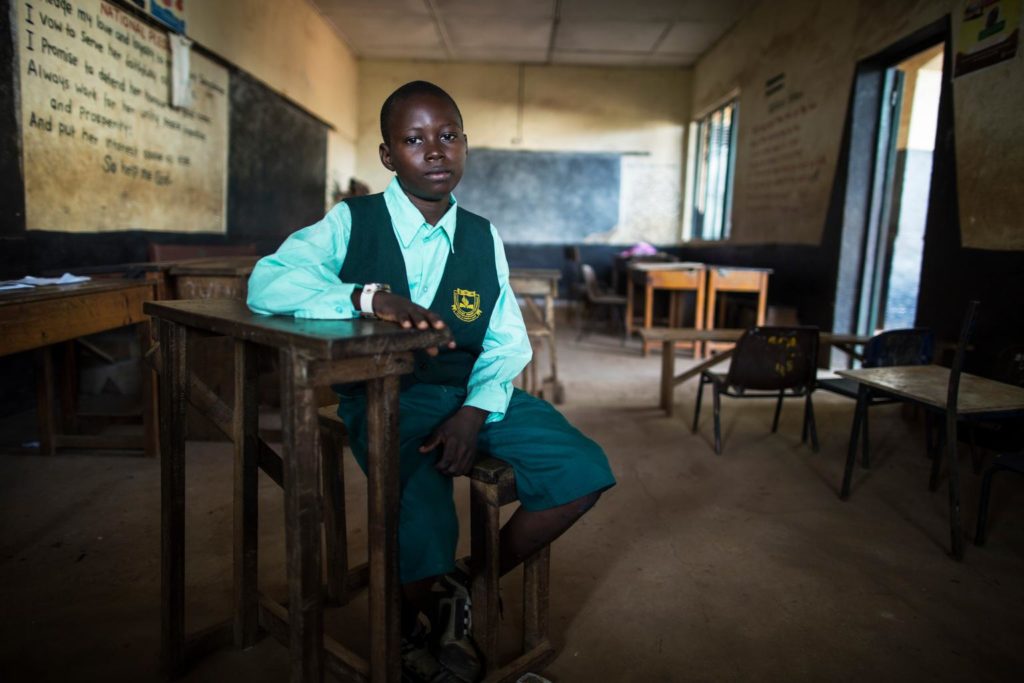The Government of Sierra Leone sees education as central to Human Capital Development and joins Giga to continue accelerating school connectivity and explore innovations to empower communities.
The Government of Sierra Leone, the International Telecommunication Union (ITU) and the United Nations Children’s Fund (UNICEF) have signed an agreement to collaborate on Giga, a UNICEF-ITU global initiative to connect every school to the Internet, and every young person to information, opportunity and choice.
Launched in 2019, Giga sets the goal of providing connectivity to every school and its surrounding community in the world. Some 3.7 billion people in the world are unable to access the Internet; a lack of access means children and young people are excluded from the wealth of information available online, limiting their opportunities to learn and grow and to fulfill their potential.
Sierra Leone has made significant progress over the past decade and is now firmly on the path towards long-term sustainable development; however, a combination of factors holds back economic recovery, including inequalities in gender, education, and income and a growing youth population facing youth unemployment. Approximately 70% of youth 15-35 (one-third of total population) are underemployed or unemployed; illiteracy remains a persistent challenge, and youth that lack skills and education find it extremely difficult to compete for the limited jobs available.
The Government recognizes the importance of education toward achieving its goal of Human Capital Development and contributing to not only the global digital economy but also its own national progress. Its Ministry of Basic and Senior Secondary Education (MBSSE) has set forth a curriculum focused on empowering learners with foundational competencies and ICT skills; its Directorate of Science, Technology and Innovation (DSTI) launched its Digitization for All Strategy to transform Sierra Leone into a hub for innovation and entrepreneurship.
“’Digitization for all’ in Sierra Leone is not just a concept. It is a developmental road map that defines paths we already tread. While the country’s education flagship program is dripping in innovation and technology, connectivity has been a blockade,”
Ms. Michala Mackay, Director & COO, Directorate of Science, Technology and Innovation Tweet
Through Giga’s school connectivity mapping and collaboration with the Government, it was found that while 80% of 11,200 schools in Sierra Leone are within 3G or 4G coverage, only 205 schools are connected. 43.3% of Sierra Leoneans cannot connect to the Internet due to cost and digital literacy constraints, while 40% are not covered at all by existing infrastructure — preventing them from accessing the wealth of educational resources and opportunities toward development.
“Connectivity is critical for our lives, our learning and prosperity; however, 960 million people living in Africa are still offline (ITU Facts and Figures 2020). In Sierra Leone where there are 86 mobile-cellular subscriptions per 100 inhabitants, and 84 percent of households are without internet access, connecting all primary and secondary schools to the internet will allow more inclusive access to young learners, enabling them to access the wealth of information available online and opening up future opportunities to them,” highlighted Doreen Bogdan Martin, Director of ITU’s Telecommunication Development Bureau.
“Minister Sengeh and his teams have been global leaders on open source technology for the public good,” said Chris Fabian, Co-Lead, Giga. “Financing and monitoring the connectivity of every school, with Giga, can support Sierra Leone’s leadership in digital public goods by helping get better, affordable connectivity into everybody’s hands.”
Sierra Leone joins Giga to expand school connectivity efforts and explore where innovations, such as digital assets, can play a role in empowering entire communities. Giga has already worked with the Government to identify several activities to support the cost-effective connection of approximately 11,000 schools — equipping a further 3 million in their local communities with the tools and skills they need to empower their nation.
“Developing digital skills and infrastructure are fundamental in reinventing education in Sierra Leone. Connecting 1000 pilot schools would no doubt leapfrog national efforts to bridge the digital divide. We are elated to be offered this opportunity and intend to take the fullest advantage of it.”
Ms. Michala Mackay Tweet

